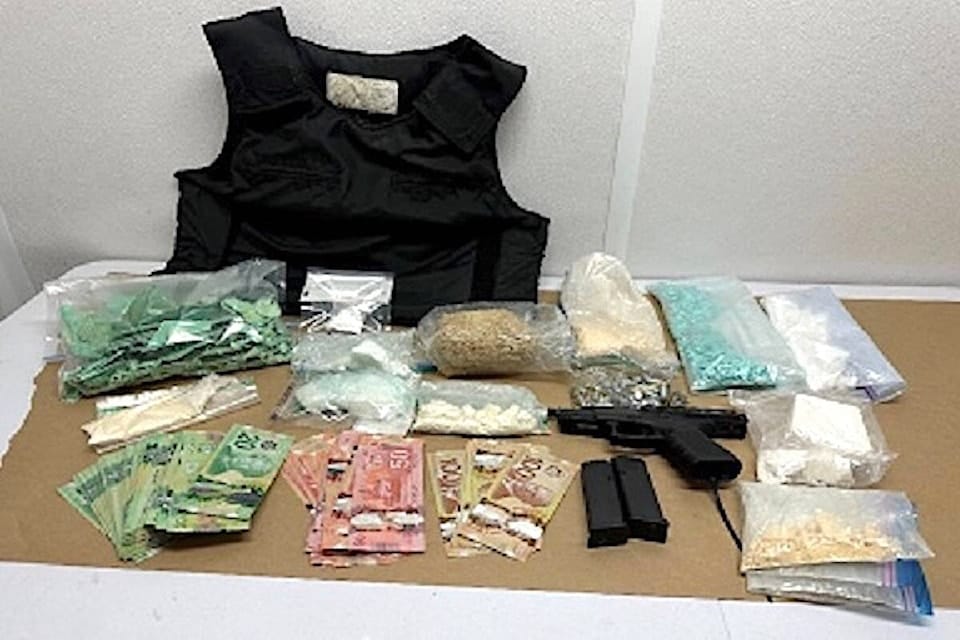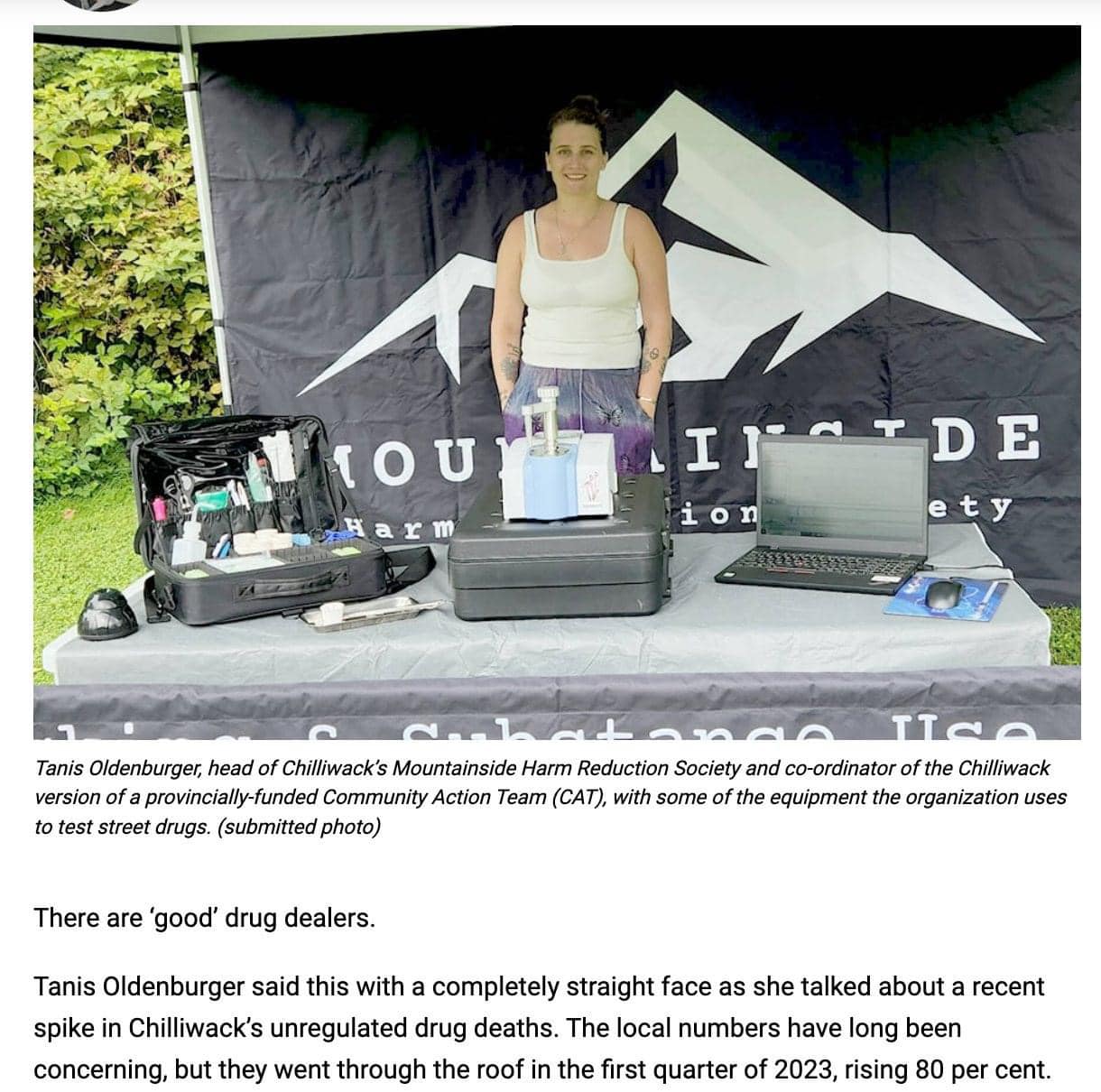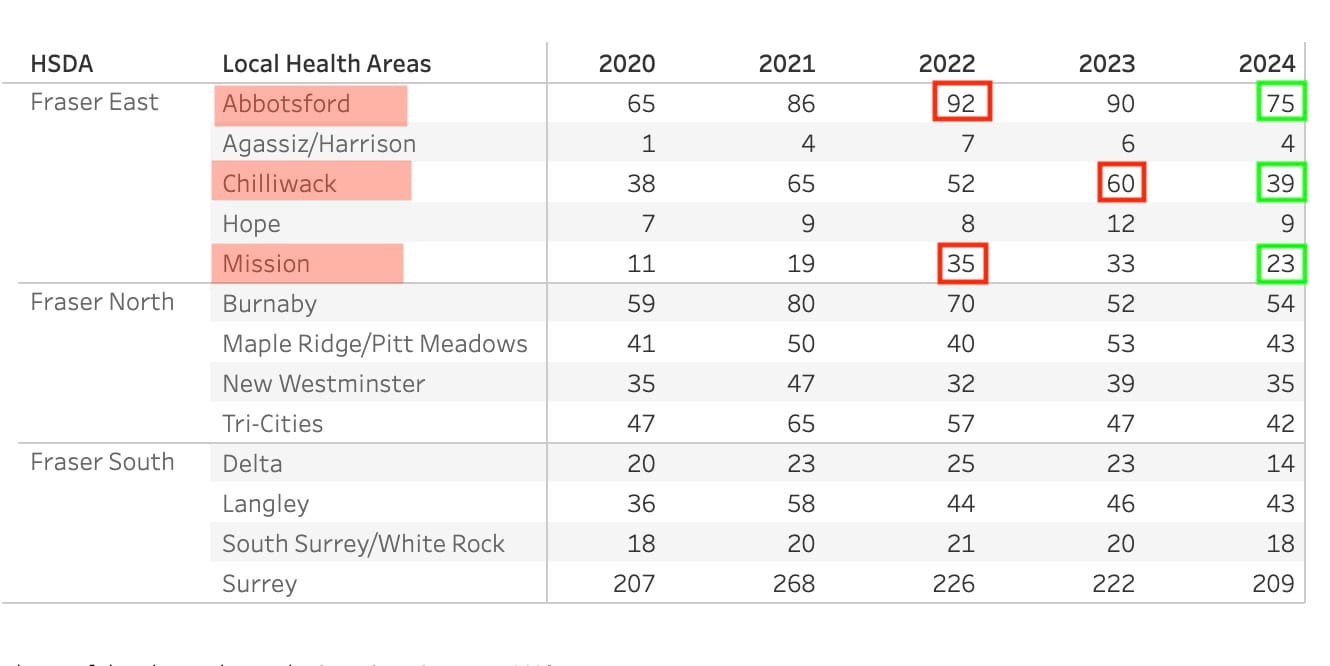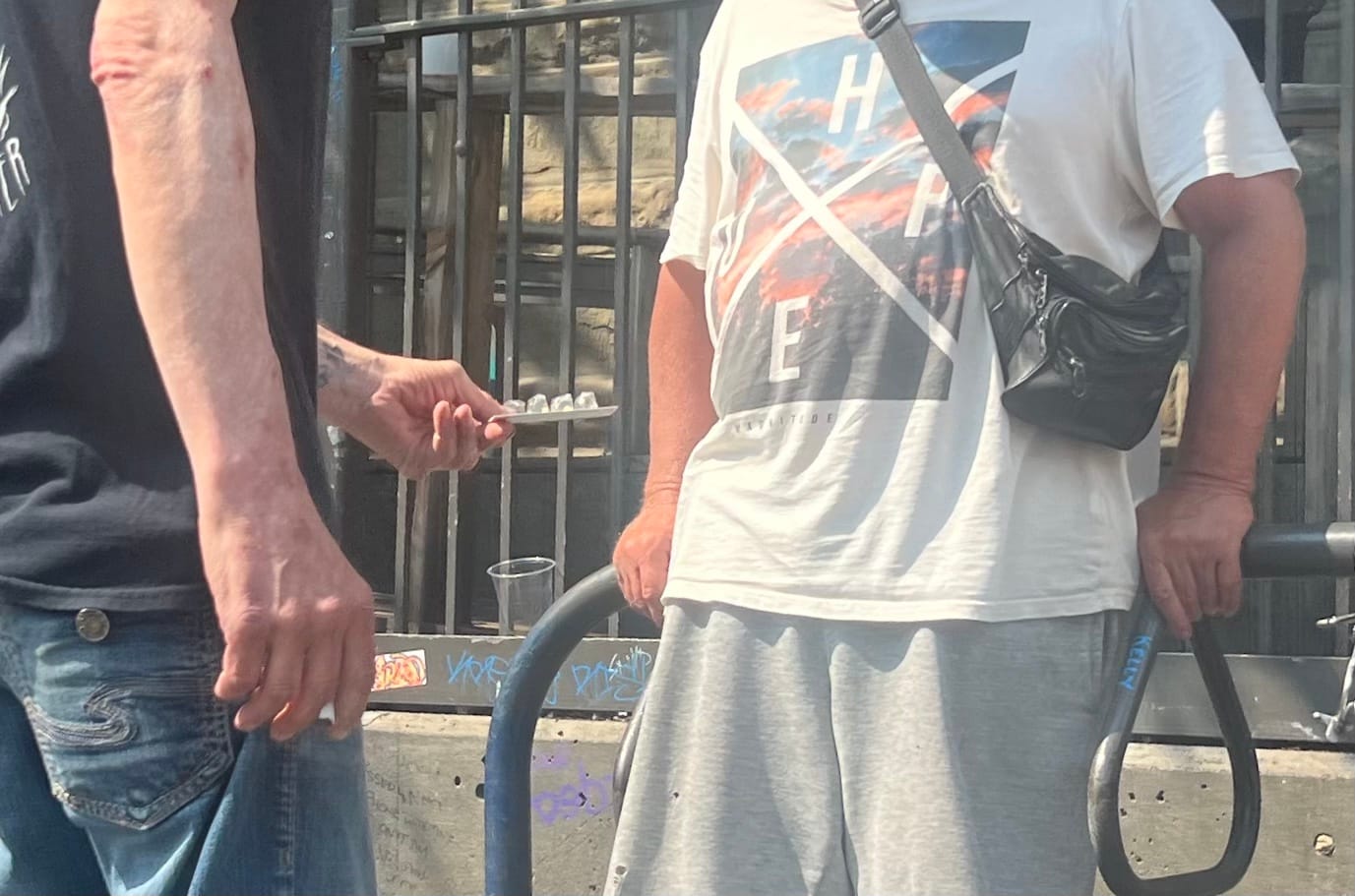What the justice system calls an illegal drug trafficker others call an 'ethical substance-use navigator'
If the war on drugs is a bad idea, if people are dying in epic numbers of toxic overdose, maybe there are 'good drug dealers' after all
"There are good drug dealers. Tanis Oldenburger said this with a completely straight face as she talked about a recent spike in Chilliwack’s unregulated drug deaths."
That was the lede written by reporter Eric Welsh in a June 27, 2023 story about a spike in overdose deaths in the Eastern Fraser Valley that Oldenburger claims coincided with a large RCMP drug bust where they arrested a drug dealer "who wasn't trying to kill customers with toxic product."
“I’m not saying all drug dealers are great because there’s a lot of violent, awful people out there, but the substances this person released into the supply were tested and known,” Oldenburger told Welsh, calling the dealer an "ethical substance-use navigator."
She specifically blamed the supposed spike in overdose deaths on the arrest of drug dealer Alan Boyarski in mid-March 2023. But Boyarski was also busted with massive amounts of drugs and guns nine months before and three months after mid-March 2023.
In June 2022, local drug squad officers were searching a vehicle and a home on Garden Drive in Chilliwack where they found cocaine, fentanyl and a loaded firearm. Boyarski and co-accused Karly Bonnett were arrested.
Undeterred, the supposed "ethical use navigator" didn't change addresses. After continued extensive investigation, RCMP officers then executed search warrants at the same Garden Drive house and a residence on Young Road on the March 2023 date mentioned by Oldenburger. Police found fentanyl, methamphetamine, cocaine, cash, a loaded handgun, ammunition, silencers, and four long guns, and Boyarski and Bonnett were arrested again.

Then they were busted again in June.
For the arrests dated June 21, 2022; March 14, 2023; and June 21, 2023, in total, Boyarski was charged with 10 counts of possession for the purpose of trafficking and 14 firearms offences. All of those offences on the three files were first addressed in court in April 2024, and all wrapped up on Nov. 27, 2024.
On that date, Boyarski was sentenced to 12 years, six years and six years, respectively, for the trafficking arrests on the three different files with different offence dates. He was also sentenced to four years for each of the three firearms files on those dates. Sentencing calculations are complicated with consecutive versus concurrent sentences. But even when they are consecutive, the so-called "principle of totality" can reduce an overall sentence to make sure it is "just and proportionate, considering the overall criminality of the offender, and is not excessive." After all the math, Boyarski received the 12-year sentence, less time served for a little over 10 years more.
Bonnett, incidentally, had all charges against her dropped except one trafficking charge and one firearm charge. She was found guilty on Jan. 3, 2025. On Jan. 31, however, a warrant was issued for her arrest, according to court services online.
“This conviction is a direct result of the commitment of the Chilliwack Drugs and Organized Crime Unit to combat organized crime and drug trafficking in our community,” according to RCMP spokesperson Insp. Jeff Bowerman. “We will continue to target those individuals who traffic illegal drugs and firearms to protect the safety of our community."
So what of Oldenburger's claim that the March 14, 2023 arrest of this one "good" drug dealer specifically, rather than the June 2022 or June 23 ones, led to an actual spike in toxic overdose deaths?

I suspect that hardworking frontline RCMP officers who risk their lives to uphold current laws dealing with drugs and guns and gangsters like Boyarski would tend to disagree. As does the Public Prosecution Service of BC and at least one provincial court judge.
Oldenburger's claim is seems like nonsense.
And it's not just the ridiculous notion that drug and gang squad officers should (or even could) pick and choose which gang-affiliated drug dealers to arrest based on claims of a volunteer at a non-profit agency who says she is testing a drug dealer's cocaine and meth and fentanyl to prevent overdoses. There is also the practical reality that there was no spike in overdoses when Boyarski was arrested for the second of three times. She was either lying or simply mistaken.
In fact, it could be argued that the good work of the RCMP's drug and gang section have helped reduce overdoses by getting this specific gang-affiliated drug dealer off the streets.
Toxic drugs have killed nearly 14,000 people in British Columbia over the last decade. The problem is persistent and horrific. Since 2016, the death toll rose almost every year, peaking between 2021 and 2023 depending on the location.
In Abbotsford and Mission the worst year was 2022 with 92 and 35 deaths respectively. In Chilliwack, it was 2023 with 60 deaths up from 52 in 2022. And while any death is one too many, that difference is statistically not a "spike' after Boyarski's March 14, 2023 arrest.
In fact, since Boyarski wasn't selling his "ethical" product at all last year, and since he is now in jail, overdose deaths for 2024 were the lowest since 2021. Overall, deaths in the Eastern Fraser Valley were down 25 per cent from 2023 to 2024.
That might not have anything to do with the incarceration of one drug dealer, but that one drug dealer's arrest certainly didn't cause a spike in deaths. There was no spike.

Nothing is working
Many people say the war on drugs has been an abysmal failure, and it's hard to argue with that.
It's also hard to argue that B.C.'s safer supply program has been a success or was the Province's decriminalization of small amounts of drugs.
The latter, decriminalization, received such bad a bad response from health-care workers and critics that the NDP government rolled it back in April 2024 in advance of the fall election. The former, safer supply, was found to have shocking lapses and "deficiencies" in its implementation, according to a report from B.C.'s Auditor General in March 2024.
This doesn't even factor in the problem of diversion, something conservative critics complained about, the government denied was occurring, and B.C. RCMP assistant commissioner John Brewer said wasn't happening, or at least wasn't "widespread."
Anecdotally, it certainly happens. I was on Vancouver's Downtown Eastside last August. Walking by Main and Hastings I noticed more than one transaction taking place that, to my naive mind, seemed backwards. Destitute-looking people were lined up to exchange drugs for money with dealers. Sure, a drug deal. But it was the dealers giving money to the users for their pills rather than the other way around. That looked like diversion to me.

All of this is to say that many of those working on the front lines of the toxic drug crisis disagree with my sarcastic take on "ethical drug dealers" and my skepticism that an illegal supply could possibly be providing positive outcomes.
If "outcome" is about reducing deaths and if established bodies such as the medical community, the criminal justice system, governments and even bankers are failing to help the problem of addiction, someone like Ann Livingston agrees with Oldenburger and thinks someone like Boyarski isn't a bad guy after all.
Livingston, if you don't know the name, is a highly respected long-time advocate who has been fighting for basic rights for drug users for more than 30 years. She received an Honorary Doctor of Laws from the University of Victoria, and she is the cofounder of VANDU (Vancouver Area Network of Drug Users), and she has been involved in opening seven overdose prevention sites.
I'm friends with Ann on Facebook. After I posted about Boyarski's 12-year sentence back in November, along with my admittedly sarcastic take on the "ethical substance navigator" label, she left me a lengthy comment that is worth posting here in its entirety by way of balance, and because of the value of her experienced, front-line opinion.
"The BC College of Physicians & Surgeons oversees the prescription drug programs to treat addiction and their programs have an abysmal 12 per cent retention rate," Livingston said. "So yes, dealers who sell predictable drugs at fair prices are noticed by drug dependent citizens as ethical. Tax money is paid to the BC College to administer a program and they are neither effective or ethical. Look at the huge number of deaths. Talk to people in treatment about the horrid arbitrary rules for OAT [opioid agonist therapy] etc. Wouldn’t it be something to expose the cruelty and hypocrisy of our 'treatment' system?
"Instead our ire goes to the criminalized drug market that the police demonize. I’d like to point out that the really huge lucrative international dealers are not ever charged even when caught with tons of drugs and the bankers that launder their hundreds of millions in profits do not go to jail, instead pay slap-on-the-wrist fines."
Other intelligent commenters I know made other observations worth noting, including from one who said that if the advocacy groups says so, then he agrees, however: "Unfortunately the firearms tell a different story. You can't have guns for the purpose of deadly defence of material goods and be ethical."
Another, Chris Neufeld, took the macro view at how silly the whole concept of illegal substances really is.
"My thoughts are, if you like Scotch, you can go to the store and buy a safe bottle of Scotch," he said. "But if you like cocaine, you can't go to the store and buy a safe package of cocaine. To me this is ridiculous hypocrisy."
-30-
Paul J. Henderson
pauljhenderson@gmail.com
facebook.com/PaulJHendersonJournalist
instagram.com/wordsarehard_pjh
x.com/PeeJayAitch
wordsarehard-pjh.bsky.social
